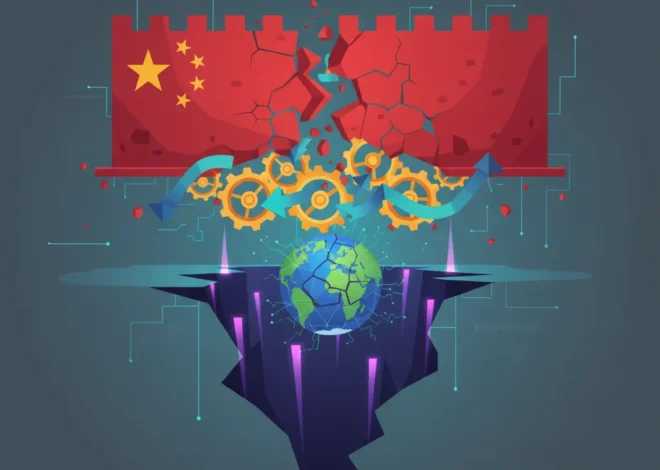
The Global Wealth Matrix: Navigating Risk, Law, and Culture in the New Economy
In the intricate world of global finance, the story of wealth is rarely just about numbers on a screen. It’s a complex narrative shaped by legal frameworks, physical security, cultural expression, and market behavior. For investors, finance professionals, and business leaders, understanding these undercurrents is no longer a niche interest—it’s essential for navigating the modern economy. This month, a series of seemingly disconnected global events paints a vivid picture of this new reality, from Abu Dhabi rewriting its laws to attract foreign capital, to Nigeria’s elite facing a terrifying security crisis, to the subtle language of wealth in Japanese gardens and the fractures appearing in the high-stakes art market.
These are not isolated incidents. They are data points in a larger trend, revealing the opportunities, risks, and evolving definitions of wealth in the 21st century. By examining these case studies, we can gain critical insights into the forces shaping the future of investing, banking, and global economic strategy.
Abu Dhabi’s Legal Gambit: Engineering a Safe Haven for Global Capital
For decades, the United Arab Emirates has been a magnet for international talent and capital. However, a significant barrier has always remained for its vast expatriate population: the application of Islamic Sharia law in personal matters like divorce, inheritance, and child custody. This legal friction created uncertainty for non-Muslims, making long-term financial and personal settlement a risky proposition. In a bold strategic move, Abu Dhabi has fundamentally altered this landscape.
The introduction of a new secular family law for non-Muslims is a landmark reform designed to align the emirate with international legal standards. This legislation allows expatriate and non-Muslim couples to marry, divorce, and manage asset division and inheritance under a civil framework familiar to Western jurisdictions. According to the official announcement, the goal is to enhance Abu Dhabi’s status as a premier destination for skills and investment.
This is more than just a legal tweak; it’s a calculated piece of economic statecraft. By offering legal predictability and security, Abu Dhabi is directly competing with other global hubs like Singapore, Hong Kong, and even London. The message is clear: your assets and family arrangements are safe here, protected by a system you understand. This move is a powerful example of how “legal technology” can be as disruptive as financial technology in the global competition for wealth.
To understand the significance of this shift, consider the key differences in the legal frameworks:
| Legal Area | Previous Framework (Sharia-based for all) | New Secular Framework (for Non-Muslims) |
|---|---|---|
| Divorce | Often complex, with outcomes based on religious principles that could be unfamiliar to expats. | “No-fault” divorce is introduced, and financial settlements are based on clear civil principles, including alimony. |
| Inheritance | Assets were often distributed according to fixed Sharia inheritance rules, which could override a will. | Individuals have the freedom to bequeath their assets as they see fit through a legally registered will. |
| Child Custody | Custody arrangements were traditionally governed by principles prioritizing the mother for young children, then the father. | Joint custody is now the default, with decisions made based on the “best interests of the child” principle common in Western law. |
For the finance and banking sectors, this reform unlocks immense potential. It encourages high-net-worth individuals to not just work in Abu Dhabi, but to establish residency, transfer their wealth, and plan their estates within the emirate’s jurisdiction. This deepens the capital pool, boosts the real estate market, and creates a more stable, long-term economic foundation.
The Other Side of the Coin: The Brutal Economics of Insecurity in Nigeria
While Abu Dhabi engineers legal safety nets to attract wealth, Nigeria’s affluent are grappling with the terrifying failure of a more fundamental guarantee: physical security. The nation is facing a brutal and escalating wave of kidnappings for ransom, a crisis that has moved from remote regions to the very doorsteps of the wealthy in major cities like Lagos and Abuja. This isn’t random crime; it’s a sophisticated and ruthless industry targeting the country’s most successful citizens.
The economic fallout from this security crisis is catastrophic and multifaceted. It acts as a massive, unofficial tax on success and a powerful deterrent to both local and foreign investing. The reported surge in abductions has forced a dramatic shift in behavior among Nigeria’s business leaders. Capital that could be fueling the economy through investment in the stock market or new ventures is instead diverted towards fortified homes, armored vehicles, and private security details. The cost of doing business skyrockets, and the risk premium for any investment becomes prohibitively high.
This crisis strikes at the heart of Nigeria’s economic potential. It triggers significant capital flight, as those with the means move their families and their money to safer jurisdictions. It cripples the growth of small and medium-sized enterprises, whose founders become prime targets. For international investors, the country risk associated with Nigeria now includes a severe and personal security threat, making long-term commitments untenable. This instability ripples through the entire financial system, impacting everything from banking confidence to trading volumes on the Nigerian Stock Exchange.
The Quiet Fortunes: Japanese Gardens as Cultural and Financial Assets
Wealth doesn’t always roar; sometimes, it whispers. Nowhere is this truer than in Japan, where the nation’s traditional gardens stand as profound and subtle reflections of wealth, culture, and philosophy. These are not mere decorative landscapes; they are living assets, meticulously curated over centuries, embodying a form of capital that transcends simple monetary value.
A Japanese garden is a masterclass in the economics of legacy. Its value is derived from its history, its design philosophy, and the incredible skill required for its upkeep. Concepts like wabi-sabi (finding beauty in imperfection and transience) and shakkei (the technique of “borrowing” scenery from the surrounding landscape) are not just aesthetic principles; they represent an investment in a worldview that prioritizes harmony, patience, and a connection to nature. As one analysis points out, this form of wealth is about stewardship rather than ownership.
From a financial perspective, these gardens are unique, illiquid assets. Their market is small and exclusive, but their value is immense. Maintaining them supports a specialized economy of master gardeners, stonemasons, and artisans whose skills have been passed down through generations. For the families who own them, the gardens are a powerful symbol of “old money” status—a testament to stability and cultural sophistication that cannot be bought overnight. In a world of volatile stock markets and fleeting digital trends, the enduring presence of a 300-year-old garden is the ultimate statement of lasting wealth.
Cracks in the Canvas: The Billion-Dollar Problem of Unpaid Auction Bills
At the highest echelons of the art market, a gentleman’s agreement has long been the gold standard. A winning bid at a prestigious auction house was considered a binding contract, backed by reputation and honor. However, this foundation of trust is being shaken by a growing problem: high-profile collectors, particularly from China, winning bids for multi-million-dollar artworks and then failing to pay.
This phenomenon of “buyer’s default” is sending shockwaves through the art world, which functions as a significant alternative investment market. When a record-setting bid for a masterpiece goes unpaid, it doesn’t just affect a single sale. It injects uncertainty and instability into the market, artificially inflates artist price indexes, and damages the credibility of the entire auction process. Auction houses like Sotheby’s and Christie’s are now forced to implement more stringent financial technology and banking-style due diligence, demanding upfront deposits and rigorous background checks that were once considered anathema in this relationship-driven industry.
The reasons behind these defaults are complex. They range from the logistical—China’s strict capital controls can make it genuinely difficult to move large sums of money out of the country—to the strategic. Some analysts speculate that a defaulting bid can be a tactic to disrupt a rival’s acquisition or to test market prices without consequence. Regardless of the motive, the result is a breakdown in the financial plumbing of the art market. It’s a stark reminder that even in markets driven by passion and prestige, the fundamentals of financial discipline and counterparty risk are paramount.
The Billion-Dollar Standoff: Inside Venture Global's High-Stakes Clash with its Biggest LNG Clients
Conclusion: The Evolving Landscape of Global Wealth
The four corners of our global tour—from a courtroom in Abu Dhabi to a garden in Kyoto, from a security convoy in Lagos to an auction block in London—reveal a profound truth about the nature of wealth today. It is more interconnected, more complex, and more influenced by non-financial factors than ever before. Legal security can be as valuable as a stock portfolio. Physical risk can erase generations of prosperity. Cultural capital can be a powerful statement of enduring legacy. And market trust, once broken, is incredibly difficult to repair.
For anyone involved in finance, investing, or international business, the lesson is clear. A successful strategy requires a holistic view that looks beyond the balance sheet. It demands an understanding of geopolitics, an appreciation for cultural nuance, and a sharp eye for the foundational risks and opportunities that truly define the global economy. The future of wealth will be built not just on innovative financial technology, but on the timeless principles of security, trust, and stability.


